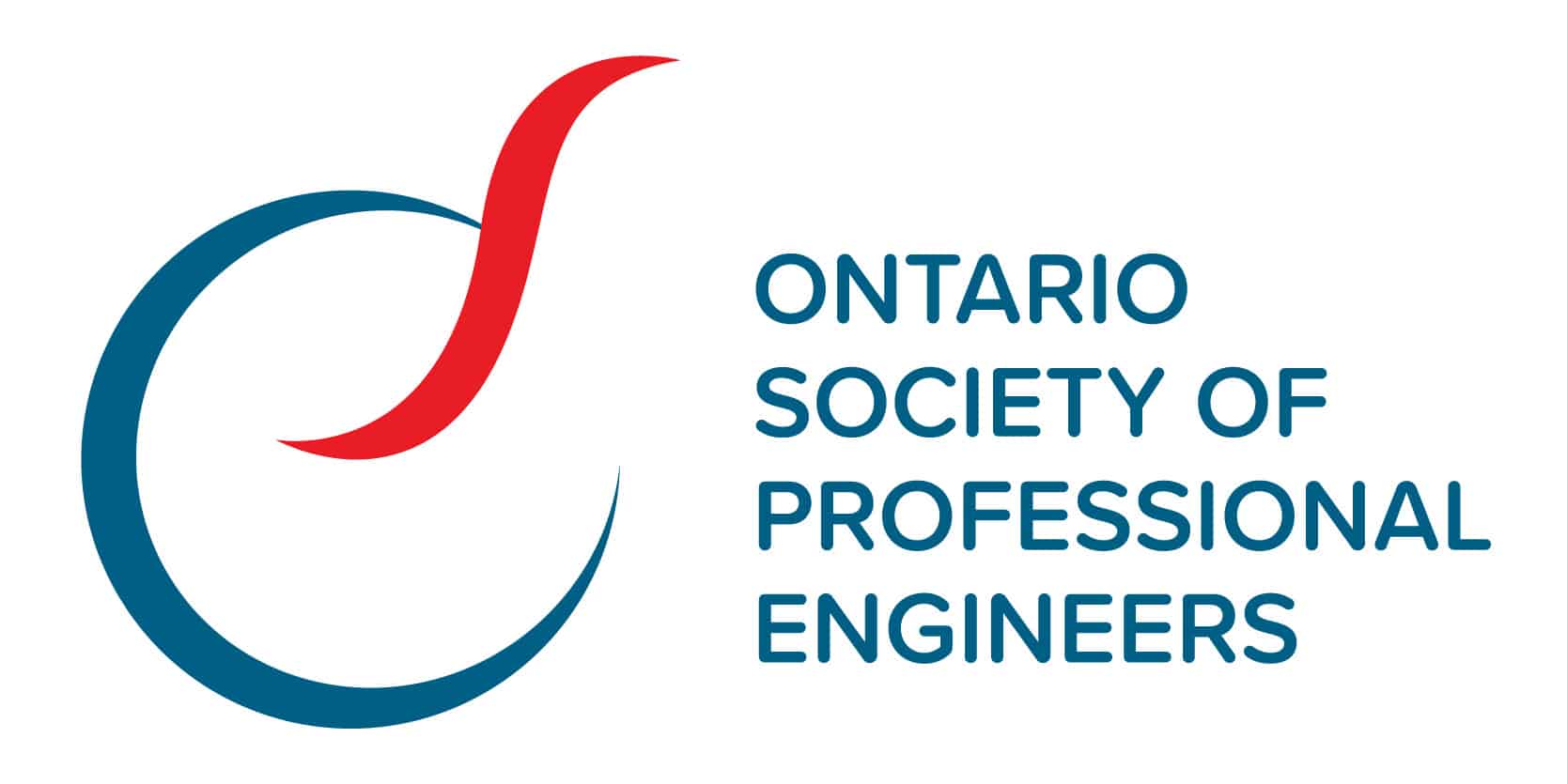
As we delve deeper into National Engineering Month, we’re highlighting notable leaders in Canada’s engineering fields to explore their evolving perspectives on the industry.
We recently connected with Jamie Weston, Head of Risk Control at CNA Canada. In this article, she discusses how engineers can have a rewarding career by leveraging their skills in risk management and embracing lifelong learning opportunities.
Tell me a bit about yourself & your background.
My name is Jamie Weston and I am the Head of Risk Control for the Canada operations based in Toronto. I lead a team of 15 professionals across the country. I joined CNA nearly 20 years ago, starting my career as a general clerk and progressing to become an administrative assistant in the Risk Control department while pursuing my education in business management at Saint Xavier University. After graduating, I completed CNA’s Risk Control Trainee program and then progressed into a technology specialist role within Risk Control. I then joined our Canadian team as the Head of Risk Control in 2023.
Why is National Engineering Month important to you and the engineering profession overall?
Insurance usually isn’t top of mind as a career path for engineers, but we want to change that – to showcase it as an opportunity and to broaden horizons. We’re interested in bringing the numerous possibilities to light through campaigns like National Engineering Month. We want to let people know that there’s a place for engineers within the risk control industry in addition to other well-known sectors such as manufacturing and technology.
The theme for NEM 2024 is lifelong learning. What does the concept of lifelong learning mean to you? Why is lifelong learning important in the work that you do?
I’ve gained substantial knowledge in this role, proven by the skill level of the trainees I lead now in comparison to when I was a trainee. Lifelong learning is a cornerstone of this field because you’re always evolving. I often advise newcomers that they need to stay up-to-date with trends, guidelines, National Fire Protection Association (NFPA) Standards, FM standards, and emerging technologies. We analyze new accounts, occupancies, and industry classes – consistently learning something new. One constant is the need to adapt. If you’re resistant to change, it not be the right industry for you. Insurance is a field for those who enjoy learning and work best without a routine. While the analysis procedures remain consistent, we frequently encounter different companies and technologies. Lifelong learning also enriches career and personal development. It aligns with CNA’s vision for continuous learning by allowing your career to grow in various directions – whether you prefer an individual contributor role, aspire to climb the corporate ladder or are aiming for a leadership position. The industry yields the diversity to pursue your passions and conjure the kind of learning you need, offering countless avenues for growth.
Can you tell me a little more about CNA Canada and the types of projects you work on?
As mentioned previously, within CNA, we have different industry classes of business that we focus on. Our core industry verticals include manufacturing, construction, and life sciences, which extend into healthcare and technology. For these specific clients, we focus on risk mitigation efforts. We assess the areas of concern, such as fire protection for buildings and facilities. We collaborate with clients to lower storage heights or reanalyze system demands to meet NFPA requirements. This is just one way we provide guidance.
We also address general liability, including premises operations, to determine risk transfer methodologies. We ensure that contractors, vendors, and suppliers have adequate insurance coverage to protect against potential losses. Additionally, in our U.S. operations, we work on workers’ compensation coverage, focusing on employee safety. For example, we explore cost-effective measures like using lift tables to prevent injuries.
CNA takes a holistic approach across the different lines of business, including commercial, auto, general liability, and product liability, to ensure safety and minimize losses for our clients in the manufacturing sector. Our goal is to enhance their profitability while maintaining a safe working environment.
How has the engineering profession changed over the past 5 to 10 years & how is CNA Canada capitalizing on those changes?
The changes in the industry over the years amalgamate with the different industry classes of business that are now entering the marketplace. And by that, I mean, how we’ve adapted to ensure our risk control consultants are trained to keep up with shifting demands. When you think about technology risks associated with new emerging systems and computer software that we use to do our jobs, we’re constantly evolving our skill set and talent. This ensures that we are able to properly assess new energy management risks that are transitioning within the scope of our appetite at CNA.
Outside of that, we also help our employees develop their skills to become leaders in different areas; such as Employee Resource Groups (ERGs) that they feel passionate about. Not only are employees getting the professional development required to do their jobs, but they’re also developing in other areas to become leaders.
Our profession is changing over time to curate a new work-life balance that blurs personal and professional boundaries in a forward-thinking way. We look at different resource groups like National Engineering Month that can be cultivated to foster what engineering means to students in today’s landscape and provide other career paths. Additionally, we’re looking at diversity, equity, and inclusion (DEI) to determine what our employees are passionate about and where they want to make a difference; from a volunteering standpoint or as an ally.
Are there any specific programs, initiatives, or outcomes happening at CNA Canada that you’d like to tell me about?
I’d like to highlight our partnership with the Ontario Society Of Professional Engineers (OSPE) in Canada, where we look for opportunities to make an impact and showcase that insurance is a desirable career of choice. Attending one of their career fairs last year, we had the opportunity to meet engineering students who were not familiar with insurance. There, we provided insights into the diverse programs at CNA from a risk control standpoint. We actually hired a recent graduate from that career fair, who is a great addition to our team and has even contributed to our thought leadership.
For NEM in 2024, we showcased how various engineering backgrounds, whether mechanical or chemical, align well with the businesses we work with at CNA Canada. Being engineers specializing in risk control allows us to utilize skills and talents within our respective fields. This is an area we’ve been focusing on this year for campus recruitment: partnering with different universities to attract different specializations.
In addition, we initiated a program within risk control last year called the “Military Associates Program”. This program is aimed to tap into the skills and expertise of veterans within their fields and bring them into our risk control engineering model at CNA. We hired 24 veterans across the U.S. and placed them in our associate programs, where they could apply their skills within the insurance industry. This program has been successful in fostering continued work outside of the military.
Lastly, we established our own ERG within risk control called Women and Risk Control. I’m currently the Co-chair of this committee, which consists of five women across the organization. Our goal is to address women’s needs in risk control and partner with other ERGs to make a difference in how we elevate women in this field.
This is essential because our industry is predominantly male-dominated. Initiatives like these aim to highlight the capabilities of women and create support networks. For example, for construction businesses in which climbing the ladder is common, there is a lack of practical attire with pockets for carrying tools. Initiatives like these make our jobs easier and more suitable for women, while also providing networking opportunities to address challenges and share best practices in risk control.
What does the future of engineering look like and how does CNA Canada fit into that?
There are many opportunities for the future of engineering. There is a plethora of paths you can take within engineering, depending on your specific passion within the field. At CNA Canada, when specializing and aligning ourselves to suit industry needs, finding diverse skill sets – even those outside of the insurance industry – can enrich our capabilities to support our clients’ business sectors.
I would continue to say that the future of engineering appears open and broad. You can find opportunities within insurance that align with your academic engineering program. For example, if you’re interested in technology, there’s a path for you. There are increasing opportunities in the industry for life sciences, which involves policies and discussions with insurers on topics like lab work, moratoriums, and product testing (whether it’s implantable devices or artificial intelligence). Data modelling is also gaining momentum with the heightened focus on analytics. As a result, we are exploring how to leverage data to improve our practices and assess risk more efficiently.
The future of engineering will be heavily driven by data and industry specializations, opening up a range of opportunities for engineering students and professionals with diverse backgrounds.
Any final thoughts?
I appreciate what National Engineering Month is doing to spotlight different industries. Some engineering students or engineering-minded individuals should explore how they can pursue their passion in the insurance industry. Exploring the ways they can make an impact is important. This partnership is a solid example of how we at CNA Canada can make an impact on the next generation.
Learn. Grow. Thrive. Together.
National Engineering Month is Ontario’s platform for celebrating the remarkable world of engineering. With a dynamic mix of insightful discussions, industry expertise, and diverse viewpoints, we’re showcasing the best of the profession. Join us in advancing engineering excellence, igniting interest in future professionals, and recognizing the vital role engineers play in society. Be a part of the #NEM2024 experience by attending an event. Explore all the exciting details at nemontario.ca.


